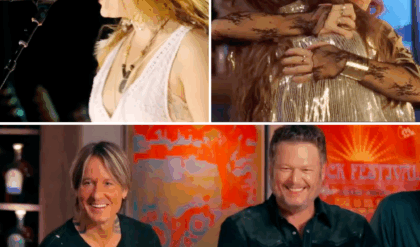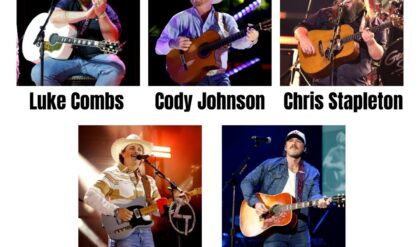In a shocking turn of events that has sent ripples through Hollywood and beyond, Chris Pratt, the beloved star of Marvel’s Guardians of the Galaxy, has found himself at the center of a heated controversy. The actor, known for his affable charm and everyman appeal, ignited a firestorm on social media after posting a heartfelt tribute to conservative activist Charlie Kirk, who was tragically shot and killed during a speaking event at Utah Valley University on September 10, 2025. What seemed like a simple gesture of condolence has spiraled into a polarizing debate, with some Marvel fans calling for Pratt’s ousting from the Marvel Cinematic Universe (MCU). So, what’s the real story behind the backlash, and why has Pratt’s tribute caused such a divide?
The Incident That Shook the Nation
Charlie Kirk, the 31-year-old founder of Turning Point USA and a prominent figure in conservative circles, was fatally shot in the neck while addressing students during his “American Comeback Tour” at Utah Valley University. The assailant, firing from a building approximately 200 yards away, used a bolt-action rifle, later recovered by authorities in a nearby wooded area. The attack, which occurred just 20 minutes into Kirk’s presentation, sent shockwaves across the United States, prompting an outpouring of grief from public figures, including former President Donald Trump, who described Kirk as a “legendary” figure whose death marked a “dark moment for America.”
Kirk, a polarizing figure known for his outspoken views on issues like gun rights, immigration, and abortion, was both celebrated and reviled. To his supporters, he was a fearless advocate for free speech and conservative values, credited with mobilizing young voters in favor of Trump’s 2024 election victory. To his critics, his rhetoric—often deemed inflammatory—made him a lightning rod for controversy. His death, however, was universally condemned as an act of senseless political violence, with figures across the political spectrum, from Barack Obama to Stephen King, urging unity and reflection.
Chris Pratt’s Tribute: A Prayer That Sparked Outrage
Among those who paid tribute to Kirk was Chris Pratt, one of Hollywood’s most recognizable conservative voices. On September 10, 2025, shortly after news of the shooting broke, Pratt took to X to share a brief but emotional message: “Praying for Charlie Kirk right now, for his wife and young children, for our country. We need God’s grace. God help us.” The post, written before Kirk’s death was confirmed, was intended as a call for compassion and healing in the wake of a national tragedy. However, it quickly became a flashpoint for criticism, particularly among Marvel fans and left-leaning social media users.
For many, Pratt’s decision to publicly mourn Kirk was seen as an implicit endorsement of the activist’s controversial views. Kirk’s past statements, such as his defense of gun rights even in the face of mass shootings or his promotion of the debunked “great replacement” theory, had long drawn ire from progressive audiences. Critics argued that Pratt’s tribute ignored the harm they believe Kirk’s rhetoric caused, with some accusing the actor of selective empathy. Comments flooded X, with users questioning why Pratt had not spoken out about other tragedies, such as the June 2025 assassination of Democratic politician Melissa Hortman or the ongoing conflict in Gaza. “Did you pray for the families of the Denver school shooting victims?” one user demanded. Another wrote, “Charlie Kirk’s murder being a bigger story than a Democratic politician’s assassination seems foreboding.”
The backlash was swift and unrelenting. Some fans called for Pratt to be fired from the MCU, with hashtags like #CancelChrisPratt trending briefly on X. Others pointed to Pratt’s absence from a 2020 fundraising event for Joe Biden, attended by many of his Avengers co-stars, as evidence of his conservative leanings. His rumored ties to a far-right church further fueled speculation about his political affiliations, despite Pratt never publicly endorsing Trump or any specific political candidate.
A Divided Response: Support and Sympathy
While the backlash was vocal, it was not universal. Many Americans, regardless of their political views, expressed support for Pratt’s tribute, viewing it as a genuine expression of grief rather than a political statement. Celebrities like Meghan McCain, Jake Paul, and Arnold Schwarzenegger also mourned Kirk’s death, emphasizing the need for unity in the face of political violence. “What a mentally sick time we are living through,” wrote Jake Paul on X. “We need God more than ever. Praying for Charlie’s family.” Even liberal figures like Jimmy Kimmel and Stephen Colbert, who disagreed with Kirk’s ideology, condemned the shooting and called for an end to political violence.
Pratt’s supporters argued that the actor was being unfairly targeted for offering condolences. “The left is trying to cancel Chris Pratt because he prayed for Charlie Kirk. Unreal,” one user posted on X. Others highlighted the hypocrisy of criticizing Pratt for mourning Kirk while remaining silent about other public figures who expressed similar sentiments. Kansas City Chiefs player Harrison Butker, for instance, shared a personal tribute to Kirk, thanking him for his “strong witness for Christ,” yet faced less scrutiny than Pratt.
The controversy also underscored the broader climate of polarization in the United States. Pratt’s tribute, though brief, was interpreted through the lens of a deeply divided nation, where even expressions of grief can be weaponized. The emergence of a website called “Charlie’s Murderers,” which appeared in response to violent jokes and memes about Kirk’s death, further highlighted the toxic nature of online discourse. For Pratt, a figure who has long straddled the line between Hollywood’s liberal mainstream and his own conservative beliefs, the backlash was a stark reminder of the challenges of navigating public life in a polarized era.
Pratt’s History of Controversy
This is not the first time Chris Pratt has faced public scrutiny. Over the years, the actor has been dogged by rumors about his political and religious beliefs. In 2019, he was criticized for attending a church with alleged ties to anti-LGBTQ+ views, prompting Pratt to defend his faith on social media, stating that his church “opens their doors to all.” In 2020, his absence from the Biden fundraiser led to accusations that he was a Trump supporter, despite his insistence that he is not aligned with any political party. More recently, Pratt’s vocal support for Robert F. Kennedy Jr., the U.S. Health Secretary, added fuel to the fire, with critics arguing that his political stances are at odds with the progressive values of many Marvel fans.
Pratt’s role as Star-Lord in the MCU has made him a household name, but it has also placed him under a microscope. As one of the few openly conservative actors in Hollywood, he has often been a target for criticism from fans who expect their heroes to align with their worldview. The Charlie Kirk controversy has only intensified this tension, with some fans arguing that Pratt’s actions could tarnish the MCU’s reputation. “I hope you get fired from Marvel,” one user wrote, echoing a sentiment shared by a vocal minority.
The Bigger Picture: Political Violence and Public Discourse
The backlash against Pratt cannot be separated from the broader context of Kirk’s death and the rising tide of political violence in the United States. Kirk’s assassination, coming just months after other high-profile acts of violence, has reignited debates about gun control, free speech, and the polarization of American society. While some conservatives described Kirk’s death as an attack on their movement, others, including former President Barack Obama, emphasized that “this kind of despicable violence has no place in our democracy.” The incident has also drawn attention to the role of social media in amplifying outrage and division, with platforms like X serving as battlegrounds for competing narratives.
For Pratt, the controversy is a stark reminder of the challenges faced by public figures in an era where every word is scrutinized. His tribute to Kirk was not an endorsement of the activist’s views but a call for compassion in a time of tragedy. Yet, in a polarized world, even a prayer can be misconstrued as a political statement. As the FBI continues its investigation into Kirk’s death, with new footage showing the suspect fleeing the scene, the nation remains on edge, grappling with questions about how to heal and move forward.
What’s Next for Chris Pratt?
As the dust settles, the question remains: what does this mean for Chris Pratt’s future in Hollywood? While calls for his firing from the MCU are unlikely to gain traction—Pratt remains a key figure in the Guardians of the Galaxy franchise—the controversy has undoubtedly bruised his public image. For now, Pratt has remained silent, choosing not to engage with his critics directly. His supporters argue that he should be allowed to express his personal beliefs without fear of professional repercussions, while his detractors see his silence on other issues as evidence of hypocrisy.
In the end, the Chris Pratt-Charlie Kirk controversy is a microcosm of a larger cultural divide. It raises questions about the boundaries of free speech, the role of celebrities in political discourse, and the impact of social media on public perception. For Pratt, a man who has built a career on his relatability and charm, navigating this divide will be no easy task. As he continues to balance his personal beliefs with his public persona, one thing is clear: in a world where every word can spark a firestorm, even a prayer can come at a cost.





